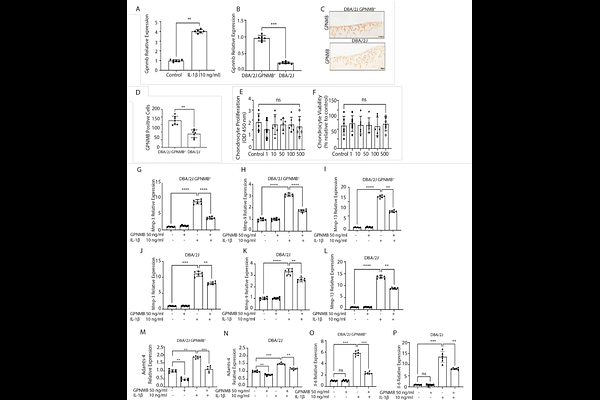The Anti-Inflammatory Role of GPNMB in Post-Traumatic Osteoarthritis

The Anti-Inflammatory Role of GPNMB in Post-Traumatic Osteoarthritis
Al-Adlaan, A. A.; Cook, B.; Solorzano, E.; Hussein, N. J.; Jaber, F. J.; Kronk, T. A.; Frangiamore, S.; Ball, H. C.; Safadi, F. F.
AbstractOsteoactivin (GPNMB) is a transmembrane protein expressed in multiple cell types with known functions in muscle, bone, and neurons, but the role of GPNMB in chondrocytes and cartilage homeostasis remains unknown. Here we show GPNMB is expressed in human and mouse primary chondrocytes, and that its expression is increased in damaged human cartilage and under pro-inflammatory conditions. We report that recombinant GPNMB treatment inhibits the expression of Mmps, Adamts-4 and Il-6 following IL-1{beta}-stimulation in vitro. In vivo, GPNMB function was assessed in a post-traumatic osteoarthritis model, destabilization of the medial meniscus (DMM). Transgenic animals lacking functional GPNMB protein (DBA/2J) developed severe cartilage damage and demonstrated significant increases in pro-inflammatory cytokine expression following DMM. To elucidate the mechanism of action, we demonstrate that GPNMB regulates the MAPK signaling pathway in primary murine chondrocytes. Taken together, our results identify a novel anti-inflammatory role for GPNMB in cartilage and chondrocytes and identify GPNMB as a potential therapeutic modality for inflammatory joint diseases.